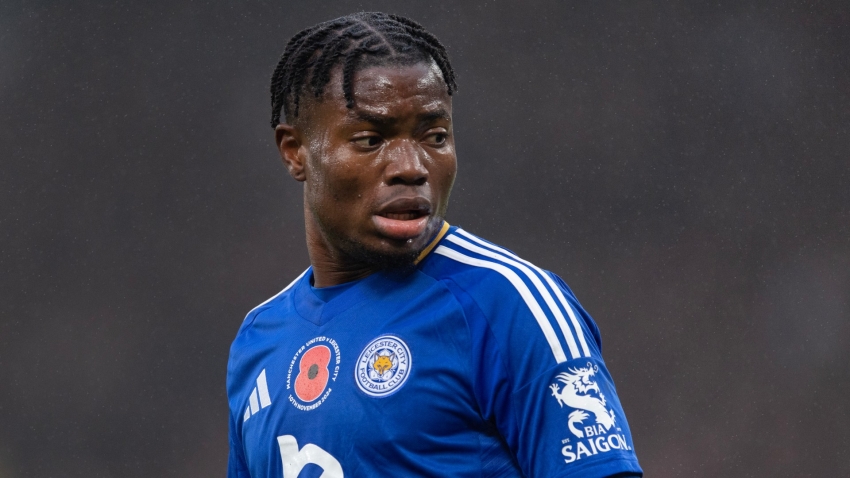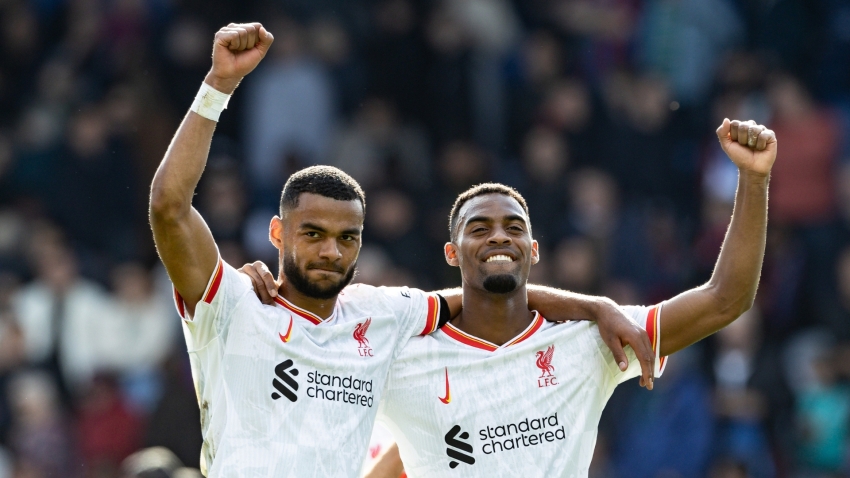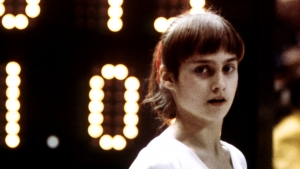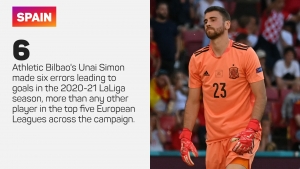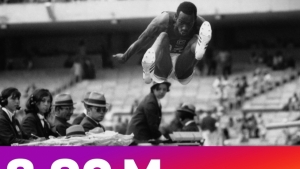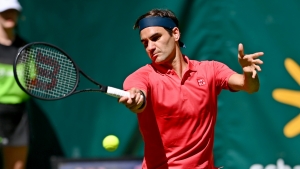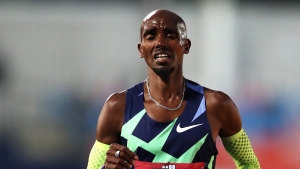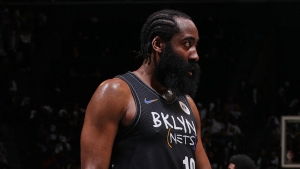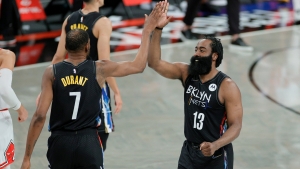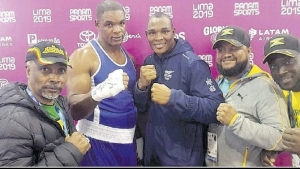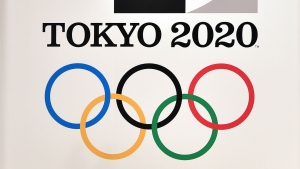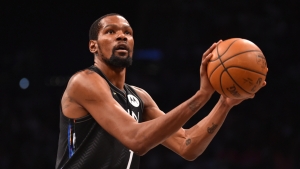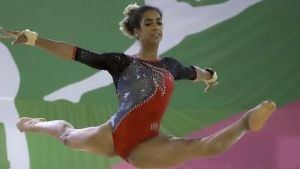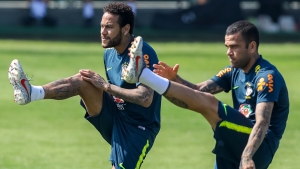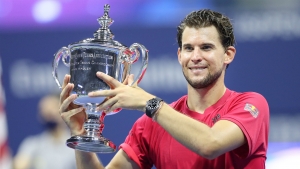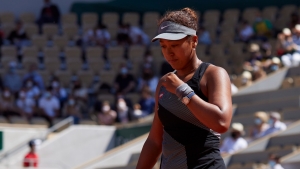Usain Bolt charged into history in Beijing, Bob Beamon took one giant leap for mankind in Mexico City, and Florence Griffith-Joyner stunned millions with her Seoul sprint spectacular.
World records in track and field are always special achievements, but athletes take it to the next level when they produce such performances on the Olympic stage, with hundreds of millions of eyes watching across the globe.
At the Tokyo 2020 Games, expect records to tumble, but others will be far from easy to shift from the record books.
Here, Stats Perform assesses five Olympic records that look set to survive the Tokyo test, and five that look distinctly vulnerable.
FIVE TO SURVIVE
Men's 200 metres: USAIN BOLT, 19.30 seconds (Beijing Olympics, 2008)
As well as this 200m mark, the likelihood is that Bolt's 100m Games record of 9.63 from the London Olympics will be untouchable too. That is despite his Olympic bests being narrowly outside the world records he owns for both sprints (9.58 and 19.19). The 200m Olympic record certainly looks locked in to remain intact after Tokyo, with nobody threatening to go remotely close this season, at the time of writing in late June. Just like when he set Olympic high watermarks in the Bird's Nest Stadium – running what were then world records in the 100m and 200m – Bolt remains streets ahead of the rest.
Men's long jump: BOB BEAMON, 8.90 metres (Mexico City, 1968)
The most famous of all athletics records, Beamon leapt into sporting legend in 1968 with the jump that toppled the previous world record by an astonishing 55 centimetres. Before that, in 33 years the record had only been nudged on by 22 centimetres. Beamon's world record has gone now, broken by Mike Powell who cleared 8.95m at the 1991 World Championship, but he still owns the second longest leap and the Olympic record. This is no golden age for long-jumping, and it would send tremors through the sporting world if Beamon's mark could be beaten.
Women's 200m: FLORENCE GRIFFITH-JOYNER, 21.34 seconds (Seoul, 1988)
American Griffith-Joyner brought her unique brand of glamour to the world stage and had eyes popping with her staggering summer of success 33 years ago. She wiped an incredible 0.27 seconds off the 100m world record when clocking 10.49secs at the US Olympic trials, and at the Games in Seoul she doubled up, setting a 200m global best with a run of 21.56s in the semi-finals before going even quicker still in the final.
Women's 800m: NADEZHDA OLIZARENKO, one minute 53.43 seconds (Moscow, 1980)
This came in a world-record run, as Olizarenko led a popular Soviet Union 1-2-3 in the two-lap dash. The current world record, just 0.15secs quicker than Olizarenko's time, was set three years later. Olizarenko died in 2017, but her Olympic record looks set to stay in the history books for years to come, particularly given Caster Semenya will be absent in Tokyo.
Women's heptathlon: JACKIE JOYNER-KERSEE, 7,291 points (Seoul, 1988)
American all-rounder Joyner-Kersee enjoyed staggering success in the 1980s as she pushed the standards of the heptathlon to still-unprecedented levels. Her world-record total from Seoul has looked unbeatable ever since, given no other athlete has come within 250 points. Joyner-Kersee also won gold in the long jump at the same 1988 Olympics with a Games record of 7.40m that also remains to this day and is likely to continue standing the test of time for many years to come.
FIVE TO FALL
Men's 1,500m: NOAH NGENY, 3:32.07 (Sydney, 2000)
This mark looks ripe to be broken, given the men's world record is 3:26:00, yet it continues to stand to this day. In 2019, the last normal year for athletics before the pandemic proved so disruptive, this Olympic best was bettered 31 times over the season. But the 1,500m is not a sprint and tactical racing is a familiar slowing factor over middle distance in the Olympics, with all eyes on the prize rather than the clock. An outright race, without any early teasing and slow-going, could see this record crushed. The men's 1,500m record last fell at the 1960 Rome Olympics, to Herb Elliott (3:35.6), and it feels ripe to go again.
Men's pole vault: THIAGO BRAZ, 6.03m (Rio, 2016)
Braz was a highly popular winner in his native Brazil five years ago, setting a Games record to boot. It would be a major shock if anyone but Armand Duplantis carried off the gold this year, with the American-born Swedish athlete the clear class act in the field. He had a 6.10m clearance in Hengelo in early June, and last year he went over 6.18m indoors. Unless he buckles under the pressure of the Olympics, Duplantis looks good to walk away with gold and a Games record.
Men's javelin: ANDREAS THORKILDSEN, 90.57m (Beijing, 2008)
Possibly the likeliest of all the athletics records to be beaten, Thorkildsen's gold-winning effort from the Bird's Nest is surely about to be overtaken. Germany's Johannes Vetter had a throw of 96.29m in May, when he hurled the javelin over 90 metres five times in one six-throw competition. The odd one out in that supreme performance was a world-class 87.27, confirming Vetter as the man to beat.
Women's 100m: FLORENCE GRIFFITH-JOYNER, 10.62 seconds (Seoul, 1988)
Although 'Flo-Jo' clocked 10.54s in the 1988 Olympic final, that was a wind-assisted run and is not considered a Games record. Which means it is this 10.62 – set, stupendously, in the heats – that is the target. For years it has looked out of reach, but then Shelly-Ann Fraser-Pryce ran 10.63 in Kingston in June, and suddenly it no longer appears quite so insurmountable. Griffith-Joyner died in 1998 after an epileptic seizure, and over 20 years later her records are still being chased by the sprint elite.
Women's triple jump: FRANCOISE MBANGO ETONE, 15.39m (Beijing, 2008)
Cameroonian athlete Etone won gold in Athens and four years later in Beijing, setting the current Olympic record in the Chinese capital. That mark is the fourth furthest achieved in history by a woman; however, Yulimar Rojas of Venezuela has two of the top three triple jumps on that list, and she will be a red-hot favourite for the gold medal. The 25-year-old had a 15.43m effort in May, illustrating she is in shape for a record tilt.










